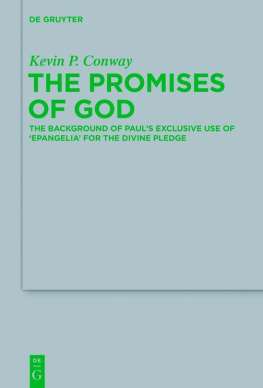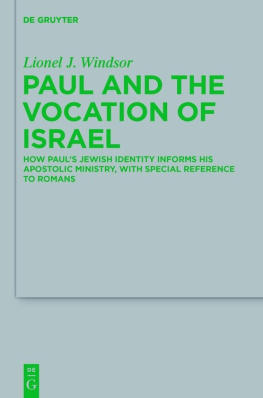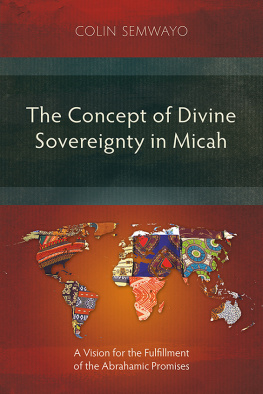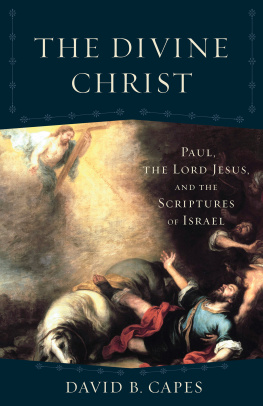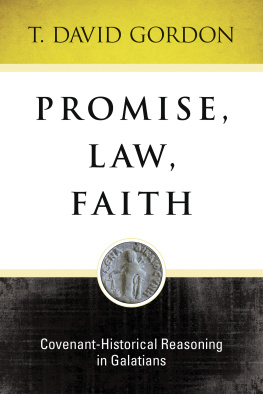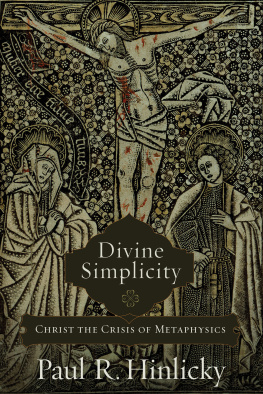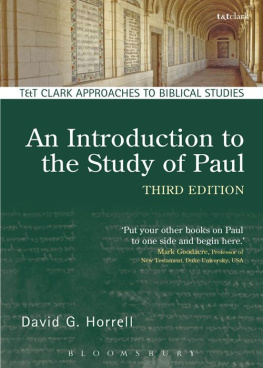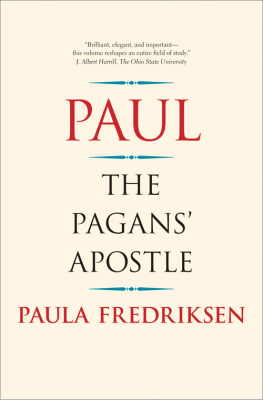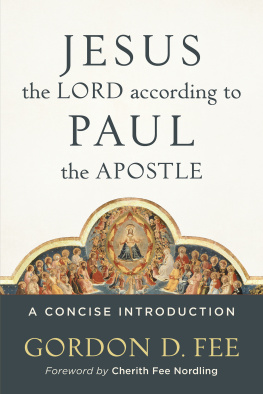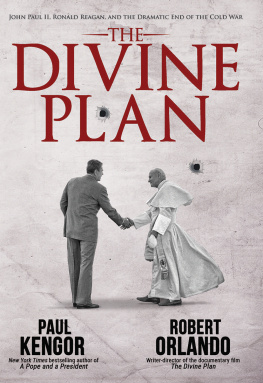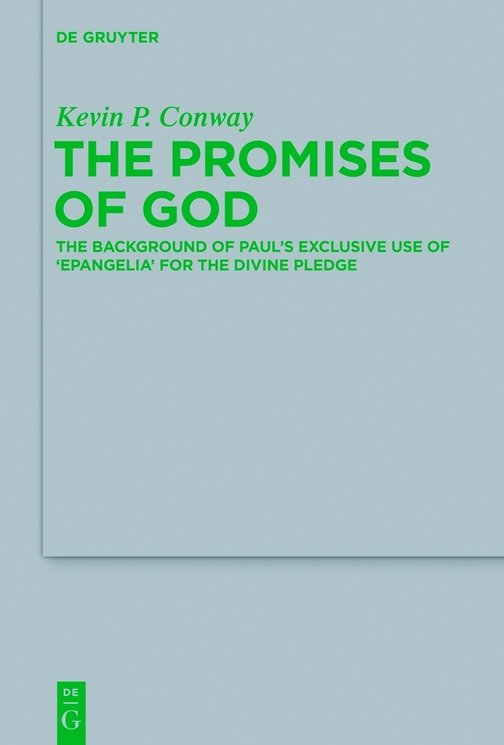You that would judge me, do not judge alone this book or that, come to this hallowed place where my friends portraits hang and look thereon think where mans glory most begins and ends and say my glory was I had such friends. William Butler Yeats
Oh, where to begin?or, the more difficult question, where to end? There are so many to thank that all I can think about are the myriad of people whose names I will forget to include. My formal biblical and theological training began when I entered Wheaton College Graduate School. How fortunate I was to there meet my future Ph.D. referees, Greg Beale and Scott Hafemann, whose love for the Scriptures and the God of those Scriptures was instrumental in fanning the flame of my love for the same. Thanks also to Doug Moo and Gene Green, who both showed keen interest in my spiritual and academic development.
I am very fortunate to have been supervised during the writing of this dissertation at the University of Cambridge by Professor William Horbury. His remarkable intellect is surpassed only by his kindness. I also had the wonderful opportunity to be supervised by Professor Graham Davies for a term while Professor Horbury was on sabbatical. Many thanks also to my readers at the viva voce, Professor Markus Bockmuehl and Doctor Simon Gathercole.
Certainly, one of the great highlights of our family life so far has been the three years we spent living next door to the Tyndale House research library. We had the unique privilege of being served by three wardens during that time: Drs. Bruce Winter, David Baker, and Pete Williams. They and their wives were very gracious to us. The staff, composed of David and Enid In-stone-Brewer, Peter Head, Dirk and Marion Jongkind, Jonathan Chaplin, Gerald Bray, Fiona Craig, Tania Raiola, and Elizabeth Magba were constant helps.
I would like to thank Corneliu Constantineau, my former colleague at the Evaneoski Teoloki Fakultet in Osijek, Croatia, for providing me with the idea to pursue this topic. Special thanks go to our mission organization at the time, Church Resource Ministries, and our many donors who made this research sabbatical possible. Also, I am thankful to the Wheaton College library staff for making their many resources available for this research.
Finally, I would like to thank my family. Unbeknownst to them, my children have regularly reminded me of their sacrifices when I have overheard them asking their mother, When is Dad finally going to be finished with his writing? Having endured life with me in five countries and numerous cities, my children are the embodiment of perseverance. And, of course, there is my wife Rahela, to whom I dedicate this work. I have been amazed at her steadfast commitment to me through all of the living situations we have experienced on the mission field over the last couple of decades. Rahela continues to be the best example to me of someone who truly loves God and trusts in his promises.
Bibliography
Adams, Edward. Constructing the World: A Study in Pauls Cosmological Language, Studies of the New Testament and its World. Edinburgh: T. & T. Clark, 2000.
Allen, Leslie C. Ezekiel 119, Word Biblical Commentary. Waco, Tex.: Word Books, 1994.
, Jeremiah: A Commentary, The Old Testament Library. Louisville, Ky.: Westminster John Knox Press, 2008.
Allen, Thomas William, William Reginald Halliday, and Edward Ernest Sikes, eds. The Homeric Hymns. Oxford: The Clarendon Press, 1936.
Allison, Dale C. Testament of Abraham. Berlin; New York: Walter de Gruyter, 2003.
Ambler, Wayne, ed. The Education of Cyrus (Xenophon). Ithaca, N.Y.: Cornell University Press, 2001.
Andersen, Francis Ian, and David Noel Freedman. Amos: A New Translation with Introduction and Commentary. New York: Doubleday, 1989.
Anderson, Gary A., and Michael E. Stone. A Synopsis of the Books of Adam and Eve, Society of Biblical Literature: Early Judaism and Its Literature. 2nd Revised ed., Atlanta: Scholars Press, 1999.
Anderson, Robert Andrew. Signs and Wonders: A Commentary on the Book of Daniel, International Theological Commentary. Grand Rapids, Mich.: W. B. Eerdmans, 1984.
Atkinson, Kenneth R. Toward a Redating of the Psalms of Solomon: Implications for Understanding the Sitz im Leben of an Unknown Jewish Sect. Journal for the Study of the Pseudepigrapha 17 (1998): 95112.
, An Intertextual Study of the Psalms of Solomon: Pseudepigrapha. Lewiston, N.Y.: E. Mellen Press, 2001.
Baltzer, Klaus, and Peter Machinist. Deutero-Isaiah: A Commentary on Isaiah 4055, Hermeneia. Minneapolis: Fortress Press, 2001.
Barclay, John M. G. Obeying the Truth: A Study of Pauls Ethics in Galatians. Edinburgh: T. & T. Clark, 1988.
, Jews in the Mediterranean Diaspora: From Alexander to Trajan (323 BCE117 CE). Edinburgh: T. & T. Clark, 1996.
Barclay, William. A Comparison of Pauls Missionary Preaching and Preaching to the Church. In Apostolic History and the Gospel: Biblical and Historical Essays Presented to F. F. Bruce on his 60th Birthday, edited by W. Ward Gasque and Ralph P. Martin, 165175. Grand Rapids, Mich.: W. B. Eerdmans, 1970.
Barnes, Jonathan. Metaphysics. In The Cambridge Companion to Aristotle, edited by Jonathan Barnes, 66108. Cambridge; New York: Cambridge University Press, 1995.
Barr, James. The Semantics of Biblical Language. London: Oxford University Press, 1961.
, Common Sense and Biblical Language. Biblica 49 (1968): 377387.
, Biblical Words for Time, Studies in Biblical Theology. 2nd (Revised) ed. London: S. C. M. Press, 1969.
, Hebrew, Aramaic and Greek in the Hellenistic Age. In The Cambridge History of Judaism, edited by William David Davies, Louis Finkelstein, William Horbury, John Sturdy, and Steven T. Katz, 79114. Cambridge; New York: Cambridge University Press, 1989.
Barrett, Charles Kingley. A Commentary on the Second Epistle to the Corinthians, Blacks New Testament Commentary Series. London: A. & C. Black, 1973.
, The Allegory of Abraham, Sarah, and Hagar in the Argument of Galatians. In Rechtfertigung (Festschrift fr Ernst Ksemann), edited by Ernst Ksemann, Johannes Friedrich, Wolfgang Phlmann, and Peter Stuhlmacher, 116. Tbingen; Gttingen: Mohr; Vandenhoeck und Ruprecht, 1976.
, The Epistle to the Romans, 2nd Revised ed. London: Hendrickson, 1991.
, A Critical and Exegetical Commentary on the Acts of the Apostles. Edinburgh: T. & T. Clark, 1994.
Barth, Christoph, and Geoffrey William Bromiley. God with Us: A Theological Introduction to the Old Testament. Grand Rapids, Mich.: W. B. Eerdmans, 1991.
Barton, John, and John Muddiman. The Oxford Bible Commentary. Oxford: Oxford University Press, 2001.
Bauckham, Richard J. Jude, 2Peter, Word Biblical Commentary. Waco, Texas: Word Publishing, 1983.
Begg, Christopher. Flavius Josephus; Judean Antiquities. Leiden; Boston: E. J. Brill, 2005.
Begg, Christopher, and Steve Mason. Flavius Josephus Translation and Commentary: Volume 4, Books 57 Judean Antiquities. Leiden; Boston: E. J. Brill, 2005.
Beker, Johan Christiaan. Paul the Apostle: The Triumph of God in Life and Thought. Philadelphia: Fortress Press, 1980.
Belleville, Linda L. Gospel and Kerygma in 2 Corinthians. In Gospel in Paul: Studies on Corinthians, Galatians and Romans for Richard N. Longenecker, edited by L. Ann Jervis, and Peter Richardson, 134164. Sheffield: Sheffield Academic Press, 1994.
Benardete, Seth. Platos Laws: The Discovery of Being. Chicago: University of Chicago Press, 2000.

